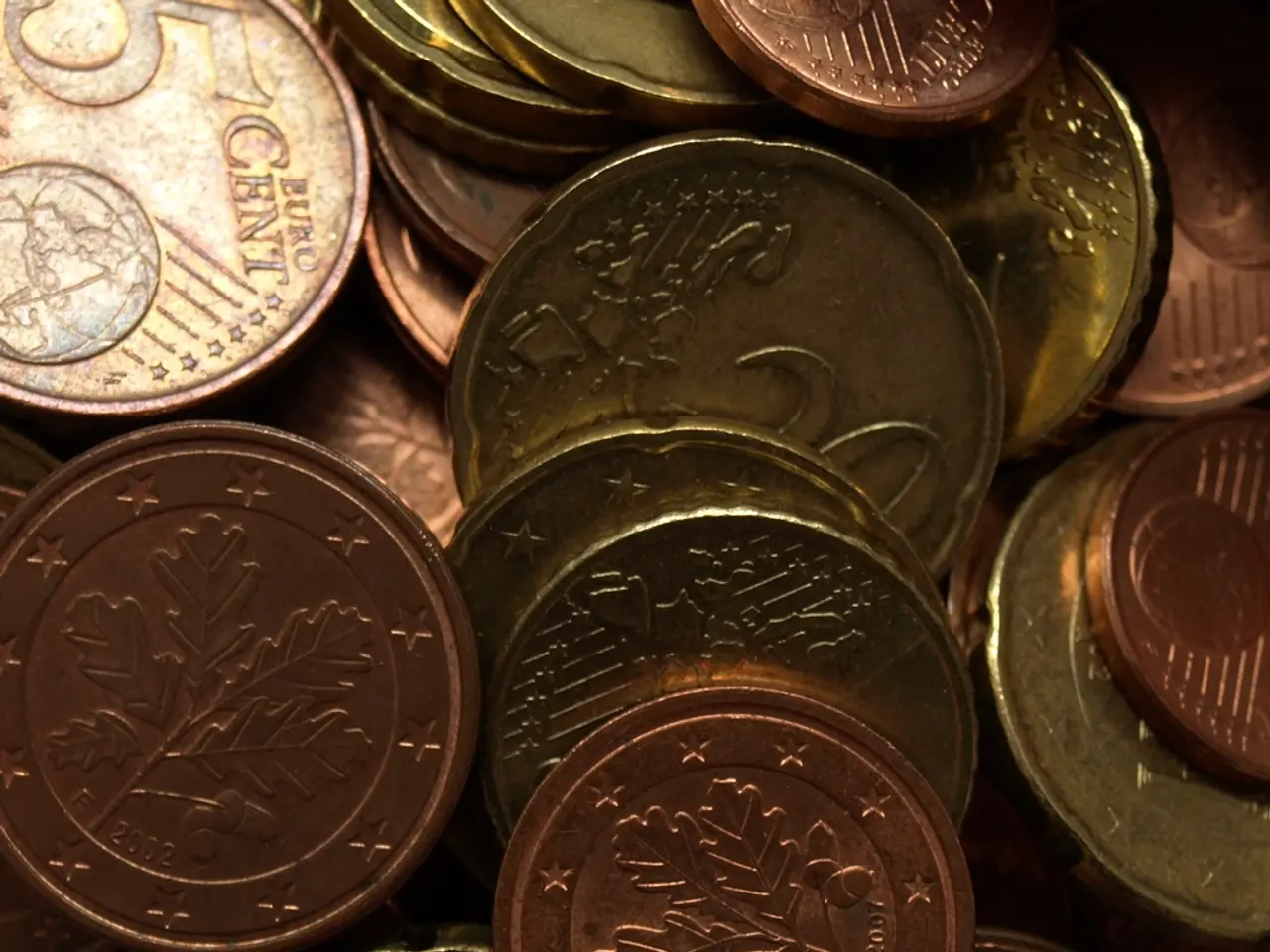Digital Currency Transactions Arrive on PayPal platform
PayPal Introduces "Pay with Crypto" Feature for Faster and Cost-Effective International Transactions
PayPal has taken a significant step in the world of digital payments by launching its stablecoin, PYUSD, and introducing a new feature called "Pay with Crypto". This service, which went live in 2023, aims to revolutionise international transactions by offering faster speeds, lower fees, and enhanced security.
The new feature significantly speeds up international transactions by employing stablecoins to mitigate cryptocurrency price volatility and simplify settlements. When a customer pays with crypto, PayPal immediately converts their cryptocurrency on exchanges into PYUSD, its own stablecoin, and further converts it into U.S. dollars for the merchant, allowing near-instant settlements without exposing businesses to market fluctuations.
Merchants can now enjoy a reduction in fees by up to 90% compared to traditional cross-border payments. The fixed fee for crypto payments is set at 0.99% for the first year, rising to 1.5% afterward, which is less than typical credit card rates (around 1.57%). This fee is lower than the typical credit card processing fee, which ranges from 1.5% to 3.5%, according to NerdWallet.
PayPal's "Pay with Crypto" feature supports over 100 cryptocurrencies, including Bitcoin, Ethereum, USDT, XRP, and Solana. Major wallets like Coinbase, MetaMask, Binance, OKX, Phantom, and Kraken are also supported.
The Genius Act, signed into law earlier this month by President Donald Trump, imposes federal regulations on the use of stablecoins. Under the Act, issuers of stablecoins are required to make monthly public disclosures of their reserve holdings. The Genius Act also prohibits issuers from falsely suggesting their stablecoins are backed by the U.S. government, federally insured, or considered legal tender, and imposes marketing rules to protect consumers from deceptive claims about stablecoins.
PayPal's stablecoin, PayPal USD (PYUSD), is pegged to the U.S. dollar, ensuring stability in transactions. The platform will support transactions from several major crypto wallets, including Coinbase, MetaMask, and Exodus.
In an effort to incentivise merchants to use PYUSD, PayPal is offering 3.7% in annual rewards for merchants storing their funds in PYUSD. PayPal first started allowing users to buy and sell cryptocurrencies on its platform in 2020.
PayPal CEO Alex Chriss stated that the new feature aims to speed up transaction times and reduce fees, particularly for international purchases. The lower fee for crypto payments can be particularly beneficial for international transactions, where fees can be higher. The surge in Bitcoin's price to a record high of $123,000 on July 14 may be partly driven by these pro-crypto policies.
In summary, PayPal’s "Pay with Crypto" feature streamlines international crypto transactions by enabling quick, low-cost payments through stablecoins, thus making global commerce easier and less expensive for U.S. merchants accepting digital assets.
- The "Pay with Crypto" feature by PayPal employs stablecoins to significantly speed up international transactions.
- Merchants can expect a reduction in fees by up to 90% when using the "Pay with Crypto" feature, compared to traditional cross-border payments.
- PayPal's stablecoin, PYUSD, supports over 100 cryptocurrencies, including Bitcoin, Ethereum, and other popular ones like USDT, XRP, and Solana.
- The Genius Act, recently signed into law, regulates the use of stablecoins like PYUSD, requiring issuers to make public disclosures and prohibiting them from making deceptive claims.



